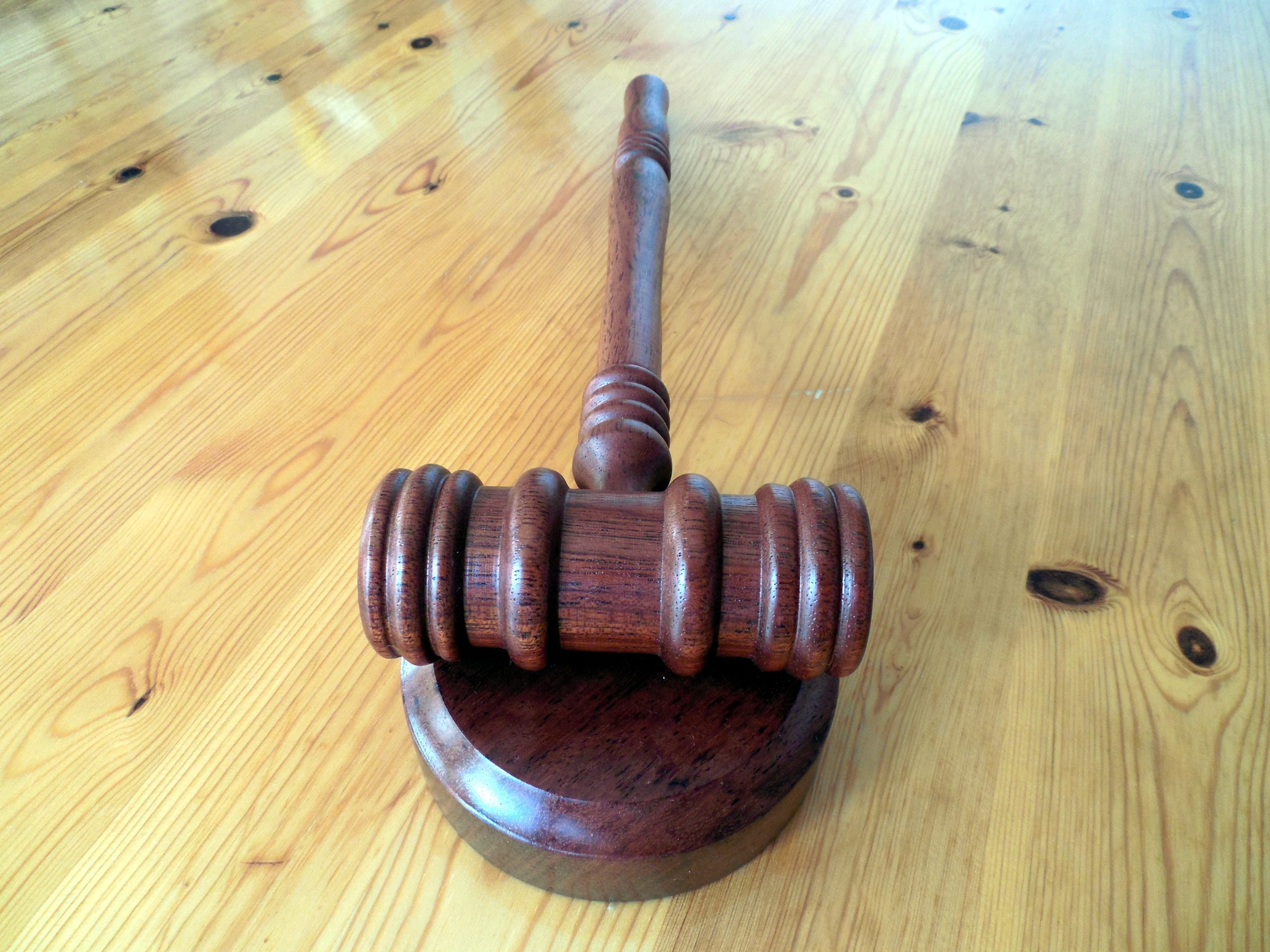 Courts often rely on motions for summary judgments to avoid the costly and time-consuming reality of going to trial and presenting a case in front of a jury. Motions for summary judgment are when one party asks the court to decide the case based on the current facts alleged in their favor. Courts should grant these motions when there are no facts in dispute for the jury to resolve. But how much evidence does a party have to present to survive one of these motions? A case out of New Orleans shows that, in some cases, just having medical records could be enough to deny a motion for summary judgment.
Courts often rely on motions for summary judgments to avoid the costly and time-consuming reality of going to trial and presenting a case in front of a jury. Motions for summary judgment are when one party asks the court to decide the case based on the current facts alleged in their favor. Courts should grant these motions when there are no facts in dispute for the jury to resolve. But how much evidence does a party have to present to survive one of these motions? A case out of New Orleans shows that, in some cases, just having medical records could be enough to deny a motion for summary judgment.
Emmanuel Bridgewater was lounging on a median at the intersection of Washington Avenue and South Dorgenois Street when a Regional Transit Authority (RTA) bus made a left-hand turn off of Toledano street and an immediate right turn onto Washington Avenue. The bus cut the corner too closely and drove onto the median, hitting Bridgewater. As a result of the accident, Bridgewater’s right arm broke, his right leg was injured, and he said that the accident left him permanently disabled. Bridgewater alleged that the bus did not stop after he was hit and instead fled the scene. A bystander who did not witness the accident heard Bridgewater calling for help and called 911 emergency services. An ambulance and New Orleans Police Officer Roger Smith arrived at the scene. Bridgewater alleged that Smith did not question him about the accident before he was taken to the hospital.
Bridgewater filed a lawsuit against the RTA and the City of New Orleans and added the Transit Management of Southeast Louisiana, Inc. (TMSL) as a defendant. Bridgewater accused the defendants of being jointly liable for his injuries and argued that the NOPD officer assigned to the RTA acted to protect the RTA from liability. Bridgewater also asserted that the City was at fault because it failed to place signs in the accident area to warn pedestrians that buses may run onto the median and hit them. The City filed for summary judgment, and the court granted the City’s motion. Next, Bridgewater filed a motion for rehearing, contesting the court’s decision. Then, RTA also filed a motion for summary judgment, and the judge denied Bridgewater’s rehearing and granted RTA’s motion. Bridgewater eventually appealed, and RTA responded, seeking attorney fees and costs against Bridgewater for filing a frivolous claim, which means that the lawsuit lacked any basis.
 Insurance Dispute Lawyer Blog
Insurance Dispute Lawyer Blog



 Nothing is more tragic than the loss of life. However, that loss can be tempered somewhat if insurance is in place that provides some financial compensation. While money cannot substitute for the loss of love and companionship that a spouse gives, it can at least provide some help with the bills and, therefore, one less thing to worry about when grieving. But what happens when the insurance company refuses to pay your claim? The following lawsuit in Tangipahoa, Louisiana, discusses these issues in the context of a car accident, uninsured motorist coverage, and the refusal of State Farm to pay the claim.
Nothing is more tragic than the loss of life. However, that loss can be tempered somewhat if insurance is in place that provides some financial compensation. While money cannot substitute for the loss of love and companionship that a spouse gives, it can at least provide some help with the bills and, therefore, one less thing to worry about when grieving. But what happens when the insurance company refuses to pay your claim? The following lawsuit in Tangipahoa, Louisiana, discusses these issues in the context of a car accident, uninsured motorist coverage, and the refusal of State Farm to pay the claim.  The lawsuit process can be expensive between investigation, preparation for trial, and the trial itself. This is on top of the emotional rollercoaster of events that have given rise to a lawsuit in the first place. Unfortunately, sometimes a plaintiff may lose at trial and be hit with all the litigation costs for both parties. The following case shows how those costs are within the court’s discretion.
The lawsuit process can be expensive between investigation, preparation for trial, and the trial itself. This is on top of the emotional rollercoaster of events that have given rise to a lawsuit in the first place. Unfortunately, sometimes a plaintiff may lose at trial and be hit with all the litigation costs for both parties. The following case shows how those costs are within the court’s discretion. Everyone wants to emerge victorious after their day in court, but occasionally the jury will refuse to award the judgment you deserve. When a person loses their case at trial, they can appeal it to a higher court. The appeal process allows for a narrow reconsideration of a case to assure that the lower court got to the correct answer; if the appeals court finds that the lower court did not get the correct answer, they can amend the lower court’s judgment, including the calculation of damages.
Everyone wants to emerge victorious after their day in court, but occasionally the jury will refuse to award the judgment you deserve. When a person loses their case at trial, they can appeal it to a higher court. The appeal process allows for a narrow reconsideration of a case to assure that the lower court got to the correct answer; if the appeals court finds that the lower court did not get the correct answer, they can amend the lower court’s judgment, including the calculation of damages.  Court cases are contentious, polarizing atmospheres between the parties. Stubbornness is ripe, and the opposing parties are staunchly in, unsurprisingly, opposition. However, sometimes even opposing parties can agree. Any party can take issue with a court’s judgment, and sometimes ALL parties can take issue with a court’s decision–even if these issues are different. But when multiple parties raise various errors in a trial court judgment, how can the higher courts resolve such allegations of error?
Court cases are contentious, polarizing atmospheres between the parties. Stubbornness is ripe, and the opposing parties are staunchly in, unsurprisingly, opposition. However, sometimes even opposing parties can agree. Any party can take issue with a court’s judgment, and sometimes ALL parties can take issue with a court’s decision–even if these issues are different. But when multiple parties raise various errors in a trial court judgment, how can the higher courts resolve such allegations of error? Hospital admission can often be a terrifying experience, but even more so is an ICU admission. Your life is literally in the hands of hospital doctors and nurses. But what happens if you sustain injuries unrelated to your original illness or injury while in the ICU? A recent patient at Mercy Regional Medical Center in Ville Platte, Louisiana, was left with no legal recourse after sustaining multiple ant bites during her ICU stay.
Hospital admission can often be a terrifying experience, but even more so is an ICU admission. Your life is literally in the hands of hospital doctors and nurses. But what happens if you sustain injuries unrelated to your original illness or injury while in the ICU? A recent patient at Mercy Regional Medical Center in Ville Platte, Louisiana, was left with no legal recourse after sustaining multiple ant bites during her ICU stay.  Before taking on one of the nation’s largest, leading automotive manufacturing companies, it is essential to consult an excellent attorney with knowledge of the Federal Court system. The importance of following the deadlines set by the Court in that system cannot be understated. Unfortunately, the lesson of how critical it is to follow court deadlines came to bear a harsh reality for the children of two deceased car accident victims in the following case.
Before taking on one of the nation’s largest, leading automotive manufacturing companies, it is essential to consult an excellent attorney with knowledge of the Federal Court system. The importance of following the deadlines set by the Court in that system cannot be understated. Unfortunately, the lesson of how critical it is to follow court deadlines came to bear a harsh reality for the children of two deceased car accident victims in the following case.
 Timing is an important part of claiming worker’s compensation in Louisiana.
Timing is an important part of claiming worker’s compensation in Louisiana.  People may be fired for a variety of reasons. Often a dismissed employee feels the termination was unjust or racially based. Bringing a lawsuit under
People may be fired for a variety of reasons. Often a dismissed employee feels the termination was unjust or racially based. Bringing a lawsuit under